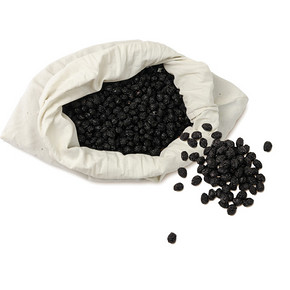What is the reason for the decline of coffee in Puerto Rico?
Follow the caf é (Wechat official account vdailycom) and found that Beautiful Cafe opened a small shop of its own.
What is the reason for the decline of coffee in Puerto Rico?
Puerto Rico has been in the news lately because its government, which has been saddled with $70 billion in debt for years, officially defaulted in August. Its embarrassing situation originated from the Spanish-American War in 1898, when Spain surrendered Puerto Rico to the United States, making it a commonwealth of the United States in the Caribbean. Unlike the 50 local states, some federal benefits are not available to it, but rules and regulations must be observed. Puerto Rico has had four referendums, the last in 2012, when 61% of its citizens approved it as the 51st state in the United States, but waiting for Congress to pass is a long way off. The state government is so unable to be protected by the bankruptcy law after default that it is jokingly called the Greece of the United States because their financial situation is similar to their political relations with the United States and the European Union.

The decline of Puerto Rico's coffee industry has a lot to do with its awkward economic and political situation. During the Spanish-American War, the United States had established a strong and lasting coffee trade agreement with Brazil, a coffee giant, and did not give too much thought to Puerto Rico, which had just been successful. Moreover, the economic purpose of the United States in the Caribbean is mainly focused on the sugar industry, which has made the local sugar cane production so booming that small-scale coffee retail investors have no way to fight, and coffee manufacturers who can survive have to merge again and again to retain their strength. It is said that the quality of local varieties has also been affected.
Nowadays, Puerto Rico's coffee is not even enough for domestic demand, and it still needs to import raw beans from other places for baking, so we don't know how much of the coffee we snapped up was picked on the island.
But the shortage of coffee on the island is not entirely due to the decline in production. Because of the closer relationship with the United States, few local people are willing to engage in the coffee-picking business. According to records, 1/4 of the coffee on the trees is wasted every year because it is not picked, because coffee farmers go to work in the United States. Those who stay, because of the minimum wage law, government subsidies, and other social welfare reasons, are also unwilling to do the work of bending over the slopes all day in the scorching sun. According to the latest statistics, today the population of the island is about 3.9 million, while the population of Puerto Rico in the United States reaches 4.2 million. No wonder the state government has recently been weighing the use of prisoners to pick coffee beans. It's just that no one knows how effective the work of these prisoners who prefer to stay in air-conditioned cells is.
Puerto Rico has the highest per capita GDP compared with Latin America as a whole, but it is lower than Mississippi, the poorest state, with 41 per cent of people living below the poverty line. But if it imports labor from other regions, it needs to pay a minimum federal wage and minimum health insurance, as well as stricter environmental policies. In this way, it loses its competitiveness compared with the surrounding Dominica, Jamaica, Cuba and other countries.
Puerto Rico is located in the Caribbean, picturesque, perennial climate, beaches, monuments, forests, but also suitable for the growth of high-quality coffee soil and Rain Water, unique natural conditions. Because within the territory of the United States, domestic tourists, including foreigners in the United States, do not need to apply for passports and visas, and there is no language barrier. Originally, these are its strengths, tourism and coffee economy should be booming. However, the former coffee kingdom has not only lost its halo, but also its government finances are in jeopardy. There are many reasons, and its awkward position in American geopolitics and economy may have something to do with it.
As a result, I think of the vast land of the East, strong young people, driven by life, left home, prosperous northward, but desolated the local hometown, forgotten a large number of left-behind children. Is this the only way to make some people rich first?
Also thinking of living in Hawaii, which is also picturesque but expensive, there are very few local families who do not rely on second or third jobs to make ends meet. How many tourists who come and leave in a hurry will realize the price paid by those who live in "heaven"?
Important Notice :
前街咖啡 FrontStreet Coffee has moved to new addredd:
FrontStreet Coffee Address: 315,Donghua East Road,GuangZhou
Tel:020 38364473
- Prev

Description of Puerto Rican taste and flavor of island coffee
Following Cafe Review (Wechat official account vdailycom) found that Beautiful Cafe opened a small shop of its own in the coffee industry. Speaking of coffee produced on the island, I think you must be no stranger to the Blue Mountains of Jamaica and Kona of Hawaii, both famous boutique coffee. In fact, if we talk about coffee from island origin, there is another kind of coffee that is worth talking about and tasting, and that is Bo.
- Next

Description of Taste and Flavor in Dominica Coffee producing area
Following Cafe (official Wechat account vdailycom) found that coffee spread in Dominica earlier than in other Central American countries, and the coffee produced here is aromatic and mellow. Dominica is headed by Mount Duarte, the highest peak in the West Indies, with many mountains above 2000 meters above sea level.
Related
- Detailed explanation of Jadeite planting Land in Panamanian Jadeite Manor introduction to the grading system of Jadeite competitive bidding, Red bid, Green bid and Rose Summer
- Story of Coffee planting in Brenka region of Costa Rica Stonehenge Manor anaerobic heavy honey treatment of flavor mouth
- What's on the barrel of Blue Mountain Coffee beans?
- Can American coffee also pull flowers? How to use hot American style to pull out a good-looking pattern?
- Can you make a cold extract with coffee beans? What is the right proportion for cold-extracted coffee formula?
- Indonesian PWN Gold Mandrine Coffee Origin Features Flavor How to Chong? Mandolin coffee is American.
- A brief introduction to the flavor characteristics of Brazilian yellow bourbon coffee beans
- What is the effect of different water quality on the flavor of cold-extracted coffee? What kind of water is best for brewing coffee?
- Why do you think of Rose Summer whenever you mention Panamanian coffee?
- Introduction to the characteristics of authentic blue mountain coffee bean producing areas? What is the CIB Coffee Authority in Jamaica?

